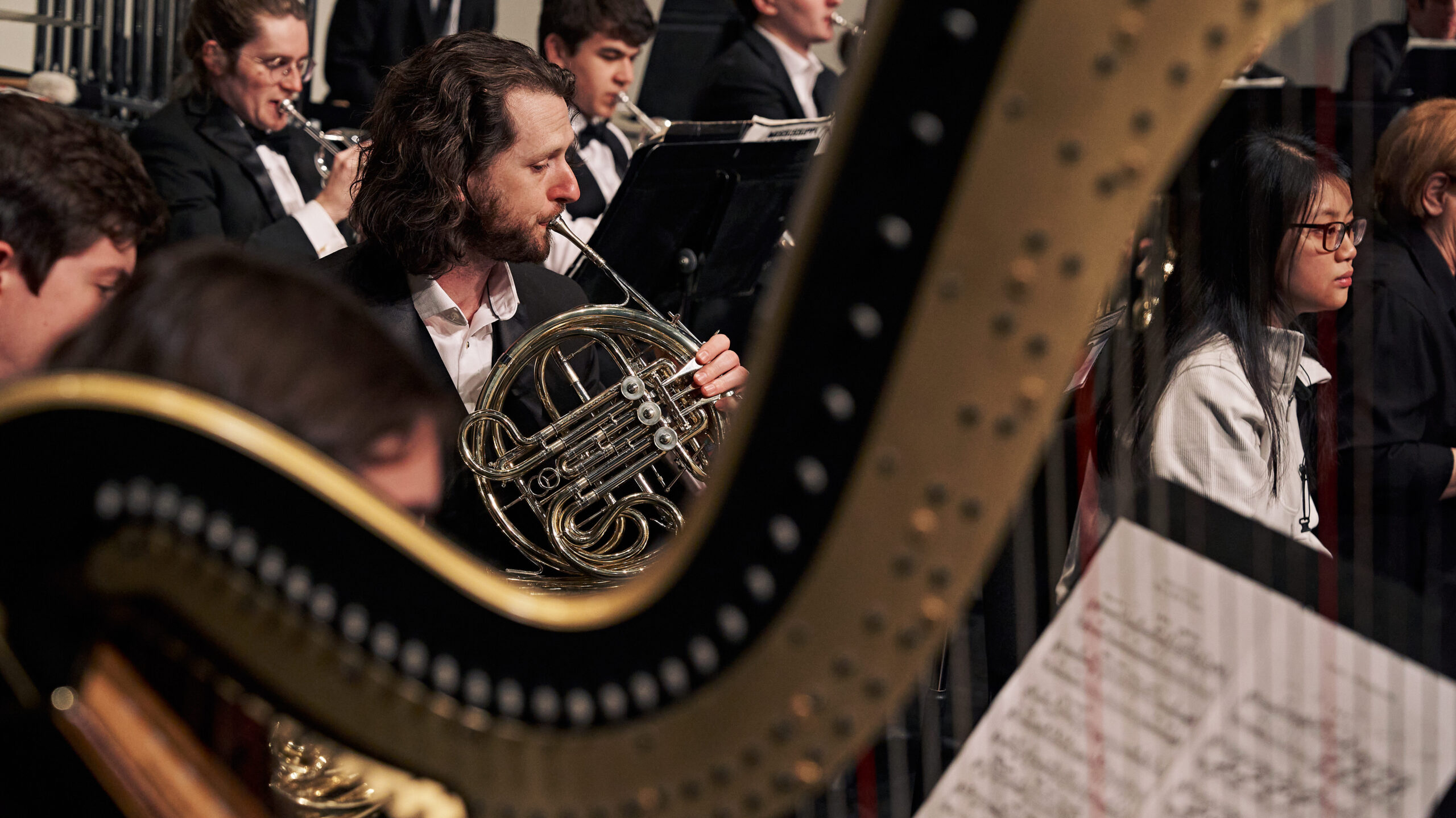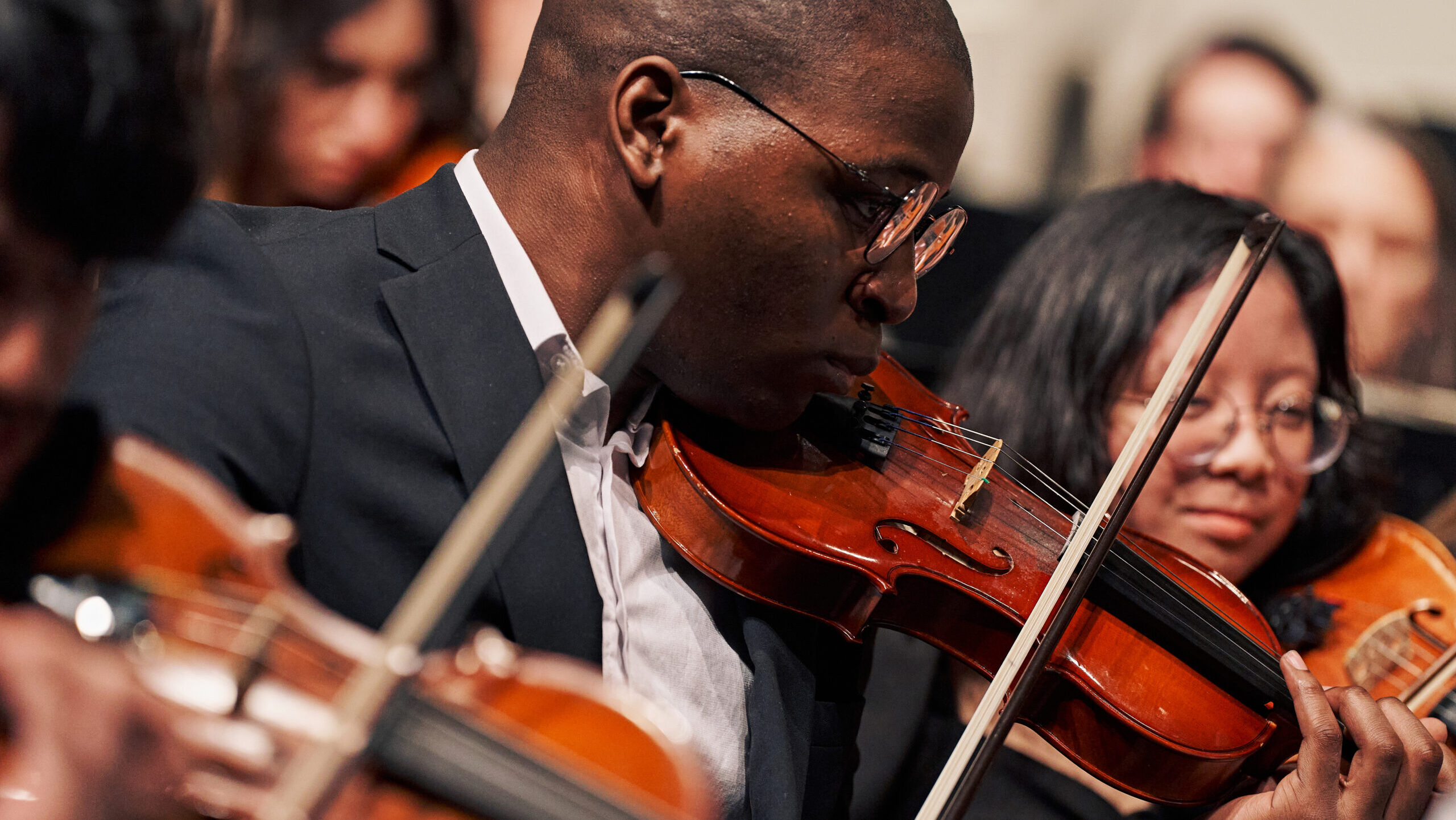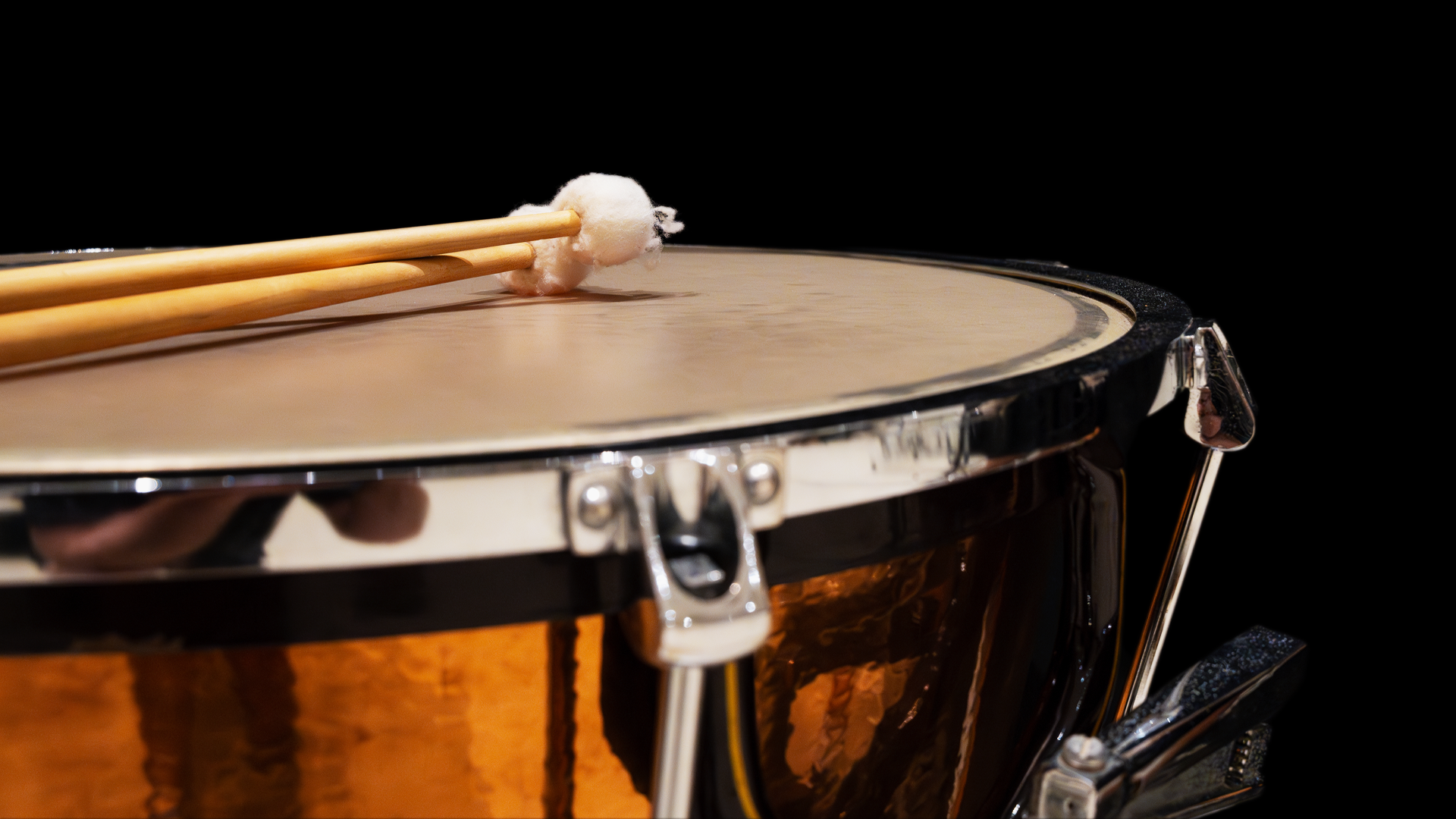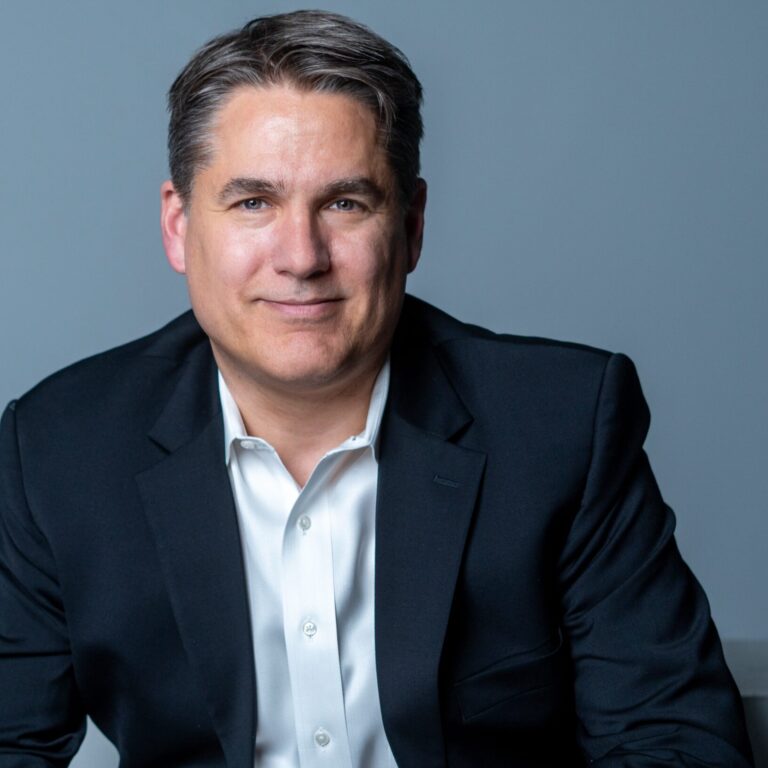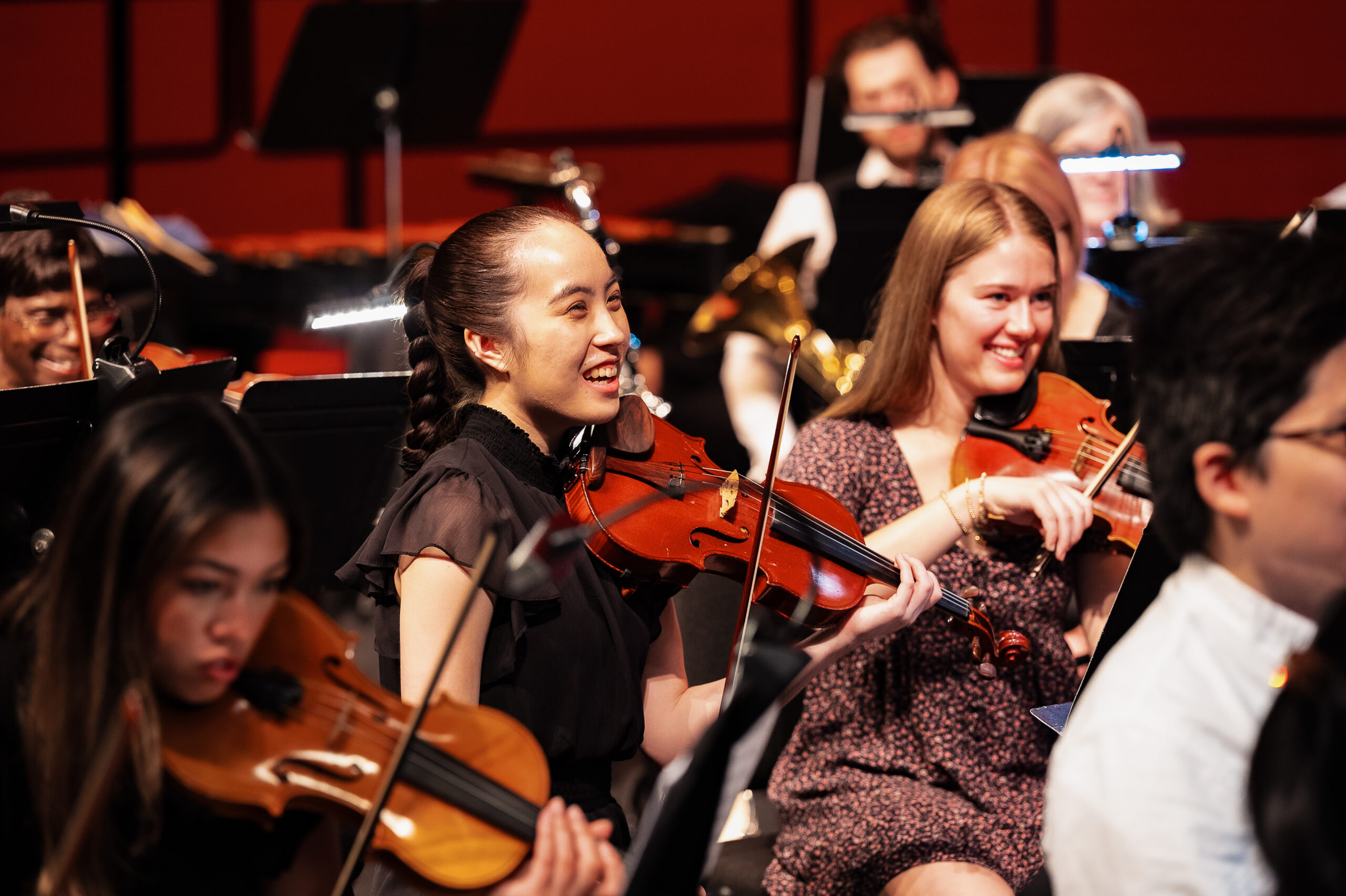
Orchestras
The NC State Orchestras—Raleigh Civic Symphony and Raleigh Civic Chamber Orchestra—are open to both students and local musicians who play string, woodwind, brass and percussion instruments.
They each perform one world premiere composition on every concert in addition to both traditional and contemporary repertoire. Their concerts have been called “some of the most fascinating and inventive programs in the area” by IndyWeek.
Students in the orchestras have the opportunity to workshop new music by various composers and learn alongside experienced musicians.
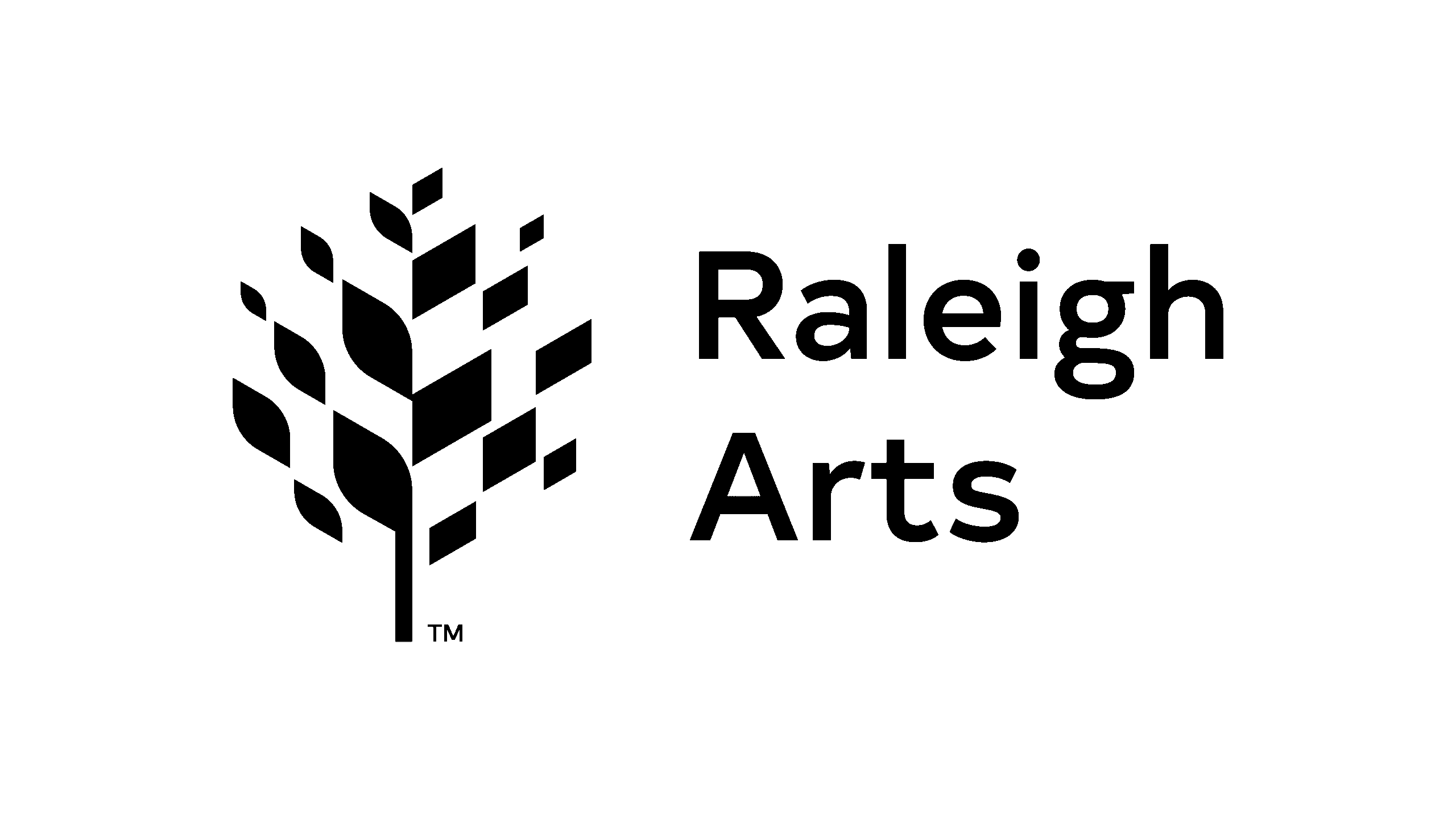
This program is funded in part by the City of Raleigh, based on recommendations of the Raleigh Arts Commission.
“My experience in the symphony has been very fun and fulfilling. I really enjoy being able to forget my stresses of the day and take a break every Monday night to work on beautiful music with some very talented people.”
Hannah Maier
Raleigh Civic Symphony
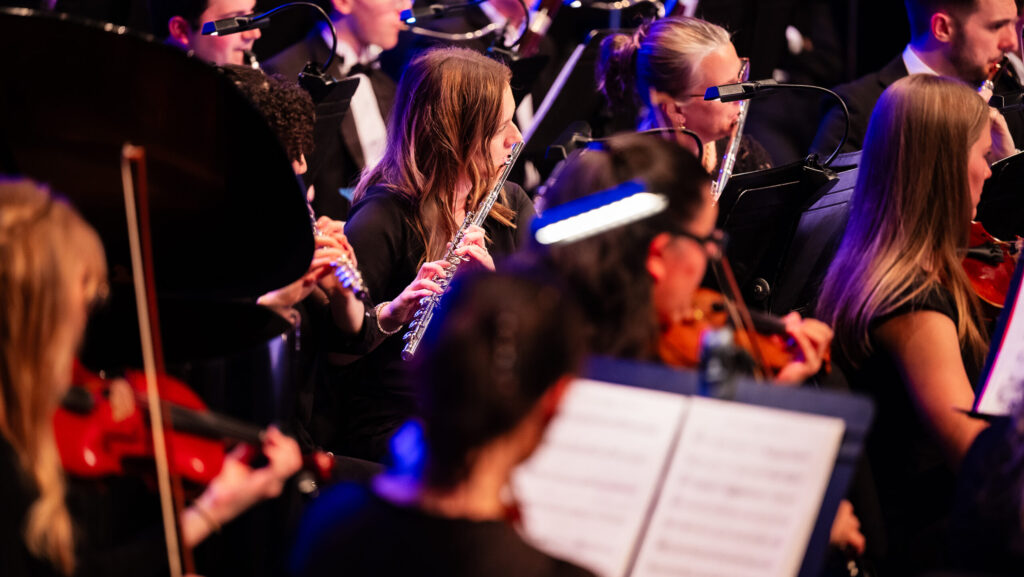
Raleigh Civic Chamber Orchestra
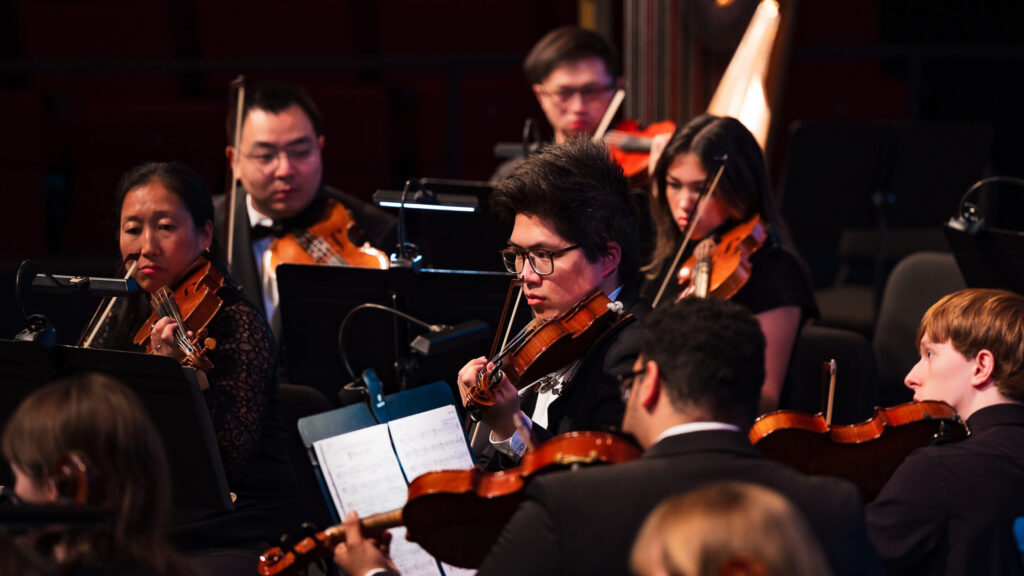
Innovation and representation
Our orchestra programs often leverage technology and innovation and highlight themes which address social, environmental or historical contexts to create immersive events. Repertoire and commissions frequently include voices which have been underrepresented in the concert hall, such as the US Premiere of Florence Price’s “Ethiopia’s Shadow in America”.
Concerts frequently celebrate vital issues of our time: Martin Luther King Jr.’s Rocky Mount, NC “I Have a Dream” speech, the 100th anniversary of women’s suffrage, the National Park System, the effect of humans on animals and the environment, and music exploring the hidden histories of NC psychiatric institutions (composed by Grammy-nominated Raleigh native Tift Merritt, below).
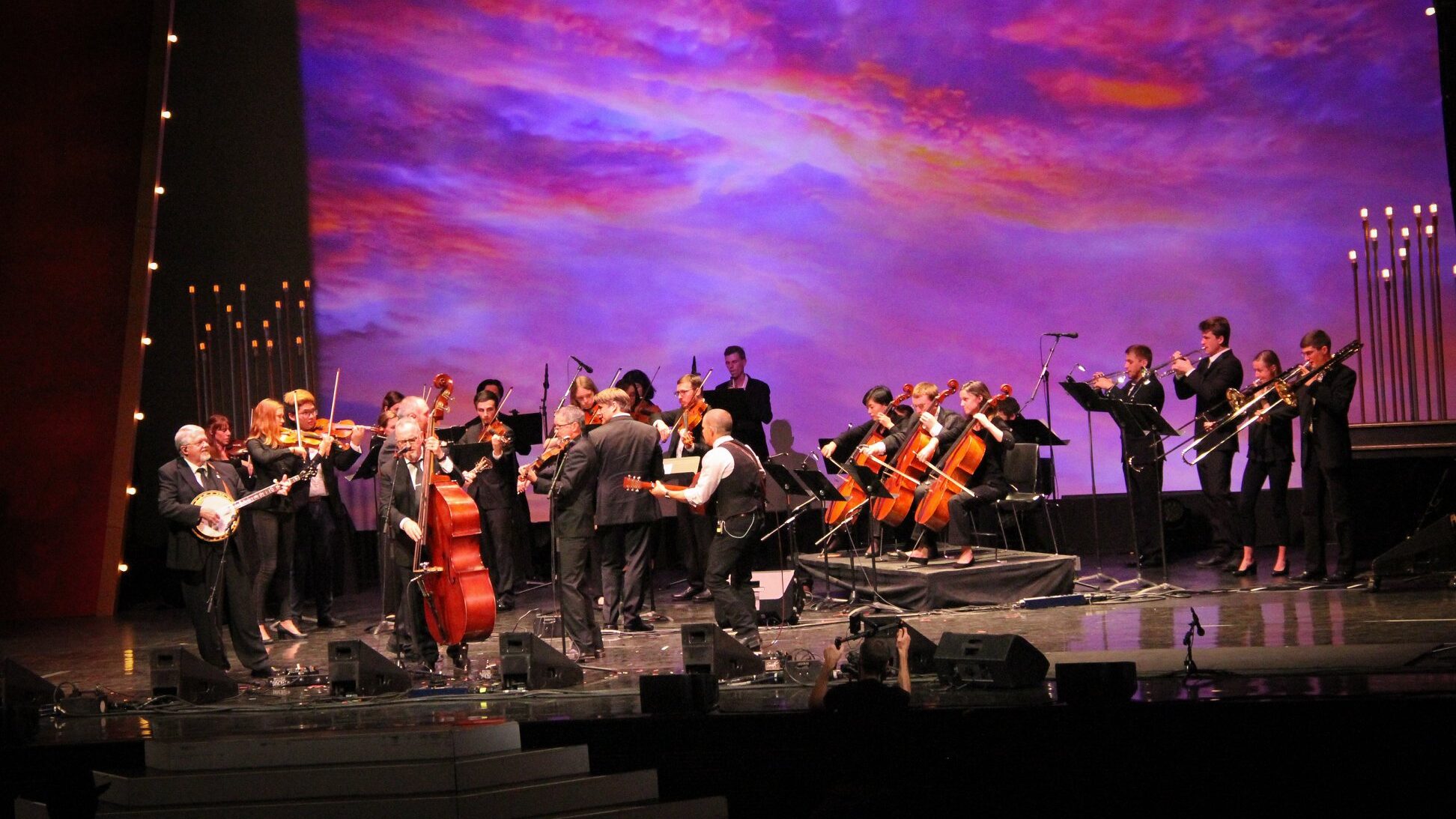
Making musical memories
Orchestra students perform on stage with bluegrass band Balsam Range during the International Bluegrass Music Awards in Sept. 2019.
Faculty
Frequently asked questions
Which instruments are included in the orchestras?
Students and community musicians who play string instruments, woodwinds, brass, percussion or piano are encouraged to audition for the orchestras.
What is the difference between the Symphony and the Chamber Orchestra? Which ensemble is right for me?
Both orchestras perform orchestral repertoire from a wide variety of time periods and styles, with the size of the group being the primary difference.
Assignment to either group is determined by the conductor (in consultation with each musician) following a successful audition, taking into account the particular instrumental needs of each ensemble at any given time.
Other Questions?
For questions about the symphony or chamber orchestra, contact Dr. Peter Askim at paaskim@ncsu.edu or 919.515.8279.
